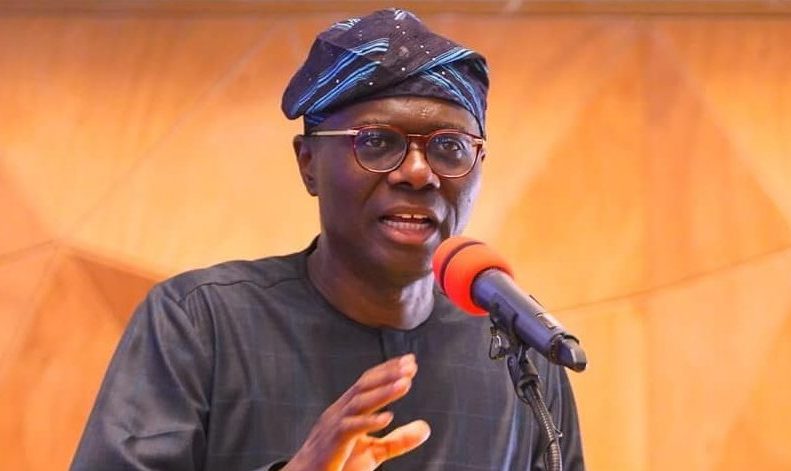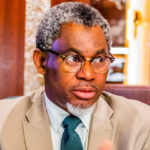
As the rescheduled governorship election holds in 28 states across the federation on March 18, DIRISU YAKUBU writes on the issues likely to throw up winners in some states where intrigues and high-stakes games are already at play
The February 25 presidential election demystified hitherto held myths about Nigerian politics, forcing bookmakers to play the ostrich after their version of the truth came back to hurt them.
Before the polls, candidates without “structures,” we were told, stood no chance of winning votes, sufficient to even warrant a public discourse.
Bola Tinubu and Atiku Abubakar, the candidates of the All Progressives Congress and the Peoples Democratic Party, respectively, were the biggest believers in the structure mantra, as they used every public platform available to them to remind their Labour Party counterpart, Mr Peter Obi, that without a single lawmaker either at the state or federal level, his party lacked the machinery required to swing votes in his favour.
Obi was similarly branded a social media candidate, as traditional politicians oblivious to the dynamics at play in the land, argued that supporters of the former Anambra State governor were largely netizens who, in any case, lacked the numbers to pull a major upset for Obi in any part of the country.
The results of the poll as collated by officials of the Independent National Electoral Commission, however, proved these permutations wrong. Obi beat the president-elect, Tinubu, in Lagos State, the first time the famous Jagaban would be defeated politically in the state.
Tellingly, that famous defeat in Lagos and Obi’s impressive showing across the country have sent worrisome shivers down the spines of many state governors.
Some of the states in focus include Lagos, which is home to 7,060,195 registered voters, making it the state with the highest number of registered voters in the country. Following the return to democracy in 1999, Tinubu has remained the political kingmaker of Lagos. He practically handpicked his successors, Babatunde Fashola, Akinwunmi Ambode, and the incumbent, Babajide Sanwo-Olu. It is on record that Tinubu is the biggest determinant of who gets what, when, and how in Lagos, politically.
Apart from the governorship of the state, Asiwaju has a voice to lend in the determination of who occupies the three senatorial district seats and the Federal Constituency slots in the House of Representatives of Lagos State.
At the presidential election, however, Obi beat Tinubu in Lagos, scoring a total of 582,454 votes, while Tinubu finished in second place with 572,606 votes.
That singular feat has seen Governor Sanwo-Olu running from pillar to post, particularly in the wake of the revelation of a secret alliance between the PDP and the LP to unseat him.
In the past few days, the governor was a guest on television programmes where he reeled out his achievements in the past four years and his plan to make the city the home to all Nigerians if given the mandate for another four years.
For now, Sanwo-Olu’s biggest threat in Lagos is the LP, whose candidate, Gbadebo Rhodes-Vivour, has seen his popularity grows at an astronomic rate since the victory of his party in the state about three weeks ago.
Sanwo-Olu has intensified campaigns with many APC members embarking on door-to-door campaigns. Also, some opinion polls have predicted victory for the governor on March 18.
Lagos State Commissioner for Information and Strategy, Gbenga Omotoso says Governor Babajide Sanwo-Olu will win the March 18 governorship election because of his excellent performance.
The state Commissioner for Information and Strategy, Gbenga Omotoso, told journalists on Thursday that the governor would win the poll.
On fear of a repeat of the February 25 presidential elections, he said there is no need to panic, stating, “Lagosians are highly deciding people who understand what the government is doing.”
Whereas, the intrigues in Rivers State are understood both by the layman and the pundit, as it were. The Governor of the State, Nyesom Wike, was engaged in a running battle with the leadership of his party, the PDP, over alleged violations of the provisions of the party’s constitution on zoning and the rotation of the offices of the presidency and national chairman between the South and North.
Wike lost the presidential ticket of the PDP to Atiku Abubakar and thereafter, with the support of four other Governors, called for the resignation of Iyorchia Ayu, the National Chairman, on the grounds that since Atiku, a northerner, had clinched the ticket, it would be against the spirit and letters of the party’s constitution to retain another northerner as chairman of the party.
Following the failure of either side to yield ground, Wike led the Rivers State Chapter of the PDP to vote for the APC in the presidential election, as the PDP lost to an opposition party in the state for the first time since 1999.
Not unaware of Wike’s role in Tinubu’s victory, some members of the APC’s Rivers State chapter have vowed to vote for his anointed governorship candidate, Siminialaye Fubara of the PDP.
Earlier in the week, the Labour party in the state pledged to work with the PDP for the success of Fubara.
The national leadership of the PDP, however, would not go down without a fight, as the party is said to be working behind the scenes to adopt a yet-to-be-revealed candidate of another party if only to repay Wike’s anti-party activities over the past few months.
As for Delta State, apart from being the sitting Governor, Ifeanyi Okowa was Atiku’s running mate, and the least expected from him was to deliver maximum votes in Delta State.
However, he managed to garner 161,600 votes, trailing the LP by a distance, having secured a tally of 341,866 votes. As the Americans would say, Okowa is in ‘deep shit’ as he fights to keep his preferred candidate, Sheriff Oborevwori, at the Delta State Government House, Asaba.
Apart from the rising popularity of the Labour Party, candidate of the APC and Deputy Senate President, Ovie Omo-Agege is not a political lightweight that Okowa can afford to treat with a wave of the hand.
With PDP chieftains including the former governor of the state, James Ibori, and Senator James Manager both working at cross purposes with the Okowa administration, it would be interesting to see which of the parties have the last laugh on March 18.
Unlike as it was in Delta, in Sokoto State, Governor Aminu Tambuwal may have won the North-West state for Atiku and the PDP in the February 25 presidential election. Yet, a dark cloud of uncertainty beclouds the governorship election, which has been rescheduled to March 18.
Atiku polled a total of 288,679 votes and was closely followed by Tinubu, who garnered an impressive tally of 285,444 votes. The paltry difference of 3,235 votes, according to a member of the PDP National Executive Committee who pleaded anonymity, “Attests to the disposition of a man you cannot trust, especially during the electioneering period.”
Asked to explain what he meant, he continued, “You don’t know what Governor Tambuwal will come up with next. You can see how we almost lost Sokoto to the APC. There are talks that he worked for both parties to make it easier for him to switch camps whichever way the pendulum swings. Here is a man who had the backing of Nyesom Wike in 2018 but chose to step down for Atiku instead of Wike in the 2022 presidential primaries of our party.”
It would be a keenly contested poll between Saidu Umar of the PDP and the APC’s Ahmad Aliyu.
Meanwhile, Kano State trails only Lagos in the number of the highest registered voters with 5,921,370. State Governor Abdullahi Ganduje was left shellacked (to borrow the term popularized by President Barack Obama) by a man he succeeded eight years ago. Ganduje had in the past demonstrated the other side of his calm and gentle appearance. In addition to his dethronement of Sanusi Lamido as Emir of Kano in 2020, Governor Ganduje stepped on a poster bearing the image of Rabiu Kwankwaso, the former Kano State governor, in what was described by political analysts as a message to the Kwakwansiyya founder that a new leader had come to town.
Alongside Governor Nasir El-Rufai of Kaduna State, Ganduje condemned the naira redesign policy of the Federal Government, describing it as a move to frustrate Tinubu’s presidential bid.
Relied on by the party to deliver huge votes from his state, Ganduje was left choking in the grip of Kwankwaso, whose party, the New Nigeria Peoples Party, secured a total of 997,279 votes, leaving the APC trailing with 517,341.
The task of having the APC standard bearer, Abba Kabir-Yusuf, succeed him is certainly a herculean one for Ganduje given the popularity of the NNPP candidate.
In a way, the governorship contest is an ego war between Ganduje and Kwankwaso, making it a hot topic of discourse in the weeks ahead.
In the case of Benue State, whose Governor is one of the rebelling G-5 against the continued chairmanship of the PDP by Iyorchia Ayu, Samuel Ortom, made it clear that he was going to work for Obi. He wasted no time in inaugurating a team with the task of drumming up support for the former Anambra State governor and instructed his aides and allies to join hands with the team.
Surprisingly, however, Ortom could not deliver Benue for the Labour Party, as the former Governor of the State, George Akume, did a great job and won sufficient votes to get a majority vote for Tinubu. The APC got a total of 310,468 votes, while the LP, backed by Ortom, came in second with 308,372 votes.
The APC is now full of confidence that its candidate, Rev. Fr. Hyacinth Alia, would succeed Ortom, who also failed in his bid to head to the Senate to represent Benue North-West Senatorial District.














